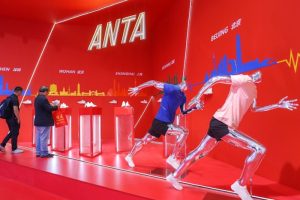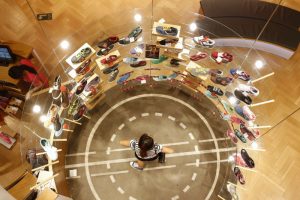(ATF) Chinese consumers supporting government-led boycotts of Western retailers over the Xinjiang cotton row have swept up domestic clothing products, sending some prices sky-rocketing.
Around 40 foreign brands who signed a pledge not to use Xinjiang cotton over alleged forced labour allegations have now been shunned by China’s shoppers.
But that has seen, according to China Securities Journal (CSJ), Chinese brand’s Li Ning limited-edition basketball shoe now retailing for up to 29,999 yuan ($4,500), which is nearly 17 times higher its original price.
Read more: Why sovereign investors have power to influence govt climate action
Even more astonishing is that another shoe is selling for as high as 48,889 yuan ($7,460), which is 31 times higher than its original offer price.
And some domestic brand flagship stores in the country’s shopping malls have reported stocks running out across the board.
Almost overnight, the topic of “fried shoes” is back. This is the practice of speculation on branded goods, such as running shoes. This time, it’s Li Ning’s shoes and Anta products that are being sought after.
But according to the CSJ, there is an important aspect to this with “consumers voting with their feet to support domestic brands” over the “malicious” boycott of Xinjiang cotton.
SHOE SPECULATORS
Though with some shoe speculators seeing this as a “business opportunity” by hoarding goods and raising prices, there could be some long-term harm, the paper warns.
In 2019, some limited-edition shoes sold by foreign brands did trigger a “crazy shoes” wave. Similarly, Pu’er tea, Chinese liquor and bitcoin have seen rampant price bubbles in China.
For this reason, the Shanghai branch of the People’s Bank of China has issued a financial briefing reminding sellers that there may be illegal fund-raising, financial fraud, leverage and other illegal issues or financial risks that may exist in shoe speculation.
Nevertheless, after the “shoe frying boom” of 2019 subsided, there were still young people left in debt due to the sharp drop-off in the prices of the shoes they had bought.






















